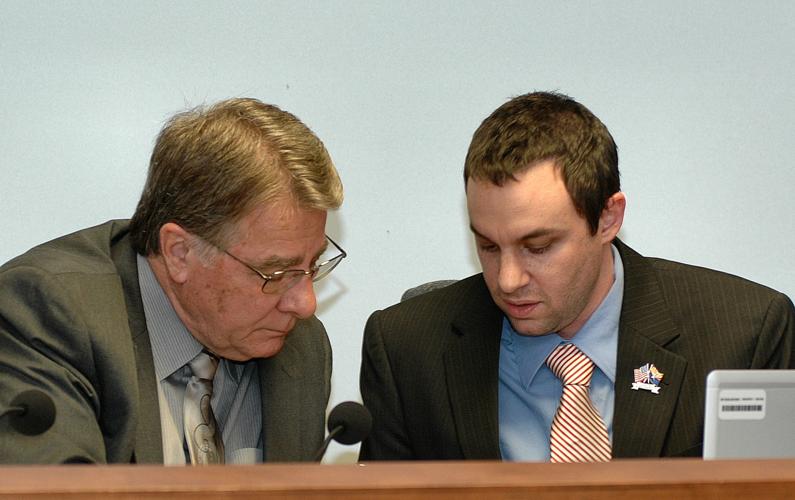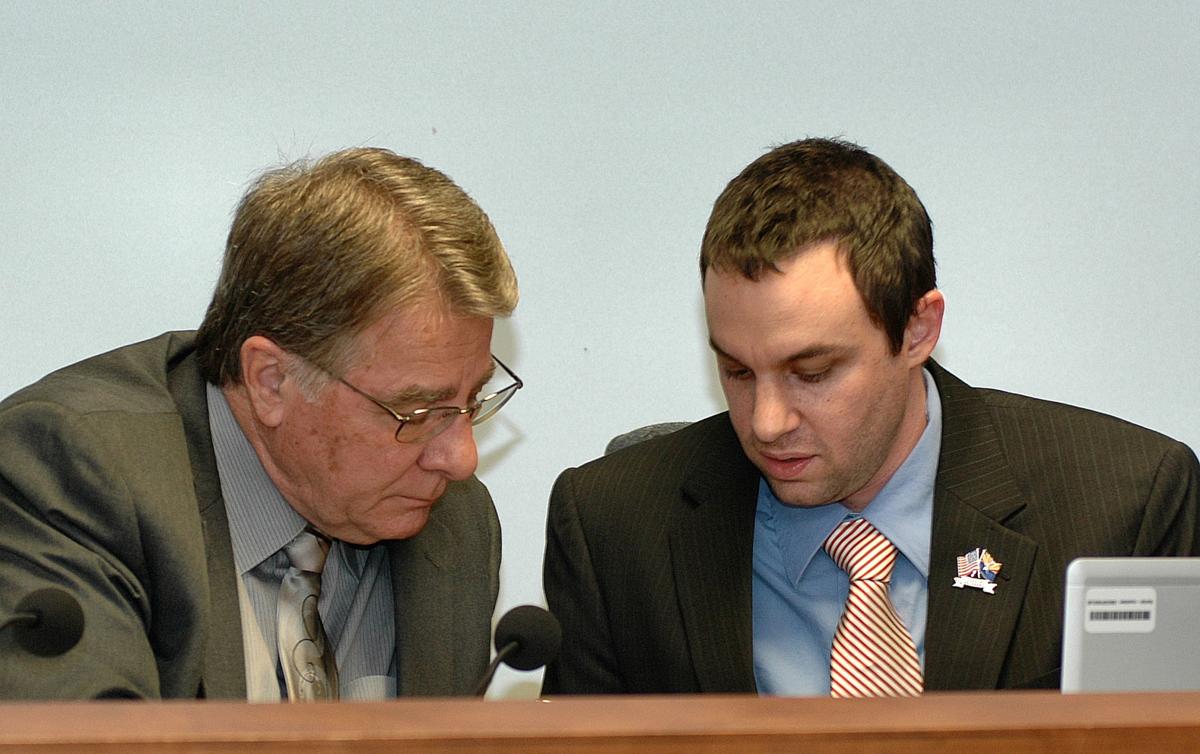For years, the governing philosophy in the state Legislature has been, “To the victor goes the spoils.”
Republican House speakers and Senate presidents, who decide which bills are heard, have generally stuffed Democrat-sponsored bills in the trash. For Republican leaders, winning the majority meant rarely listening to the minority.
That’s been especially dismal news for Southern Arizona, which is represented mostly by Democrats.
This session, though, with new leaders in both houses, that has changed, two Tucson Democrats told me from Phoenix.
Rep. Randy Friese, the assistant minority leader, said Speaker J.D. Mesnard is refreshingly different from fellow Southern Arizona legislator David Gowan, the Republican speaker from Sierra Vista whose term ended last year.
“The new speaker has been quite reasonable and attentive to our concerns,” Friese said. “Many Democrats’ bills are being heard. He is assigning our bills and they’re being heard earlier in the session.”
There’s no guarantee of passage, of course. Friese’s bill that would have required motorcyclists to either wear a helmet or pay an opt-out fee died in committee. But at least it got an honest debate and hearing.
Sen. Steve Farley, the Tucsonan who is assistant minority leader in the other chamber, has noticed similar changes. The new Senate president, Sen. Steve Yarbrough, has been open and respectful, Farley said, in contrast to former Senate president Andy Biggs.
“Yarbrough has been helpful in ways I did not expect,” Farley said. “I feel like I’m an equal member of this body in a way I haven’t felt in years.”
Sen. David Farnsworth, the Republican who chairs the finance committee, has also included Farley in agenda-setting meetings, something Farley didn’t expect. The two are even jointly pushing a bill that would put a “sunset,” or endpoint, on the many exemptions to the state’s sales-tax law.
This is an issue Farley has pursued for years, because the value of the exemptions, if revoked, could be in the billions of dollars. That money could be used to fix some of the state’s problems, Farley says.
Farnsworth would prefer to end loopholes in order to reduce or eliminate the state income tax. Whatever the reason, they’re working together.
It’s a refreshing change that should work better for everyone in the end.
Border Patrol Union gets win
As I’ve written, the National Border Patrol Council, the agents’ union, has benefited from being an early and strong endorser of Donald Trump for president.
It’s had access to the White House, with Trump singling out union president Brandon Judd at a speech Wednesday. And they now have their first scalp.
The relatively new chief of the U.S. Border Patrol, Mark Morgan, has been forced out of the job. The fact that the union vehemently opposed him cannot have been a coincidence.
In November, the agency released a scathing critique of Morgan, a former FBI agent who joined the Border Patrol as an internal affairs enforcer.
“Morgan, who loves to flaunt his FBI credentials, was arrogant enough to push a great leader, manager, and citizen aside to feed his own ego and personal interest,” the statement read. “In reality, and if his first 6 months are any indication, he is in over his head and doing nothing but running scared.”
The union favored an agency insider candidate.
It’s not uncommon for law enforcement unions to be in an adversarial relationship with the chiefs of their agencies. In fact, it’s probably healthy, as long as they don’t become enemies. Now, the risk is on the other side — that the relationship will go from too adversarial to too cozy.
Election tensions persist
Simmering tensions between Arizona’s county recorders and the Arizona Secretary of State’s Office boiled over this week. As the Arizona Center for Investigative Reporting revealed Wednesday, all 15 recorders sent a joint letter to Secretary of State Michele Reagan, demanding better communication and treatment, especially from Eric Spencer, the state elections director who serves under Reagan.
“Communication between the County Recorders and the Secretary of State’s Office is in a dire state, failing to function as an equal partnership or even a cooperative working relationship,” the letter reads. “There needs to be dialogue with State Elections Director Eric Spencer, not dictation. Questions must be encouraged and answered fully and willingly from all offices involved.”
Tensions have boiled over a variety of issues, Pima County Recorder F. Ann Rodriguez told me. One of the most important is a new, statewide voter registration system that the Secretary of State’s Office is pushing, though it would replace new systems in Maricopa and Pima counties already paid for by taxpayers. The new system would cost local taxpayers as well.
“We’ve said not ‘no,’ but ‘hell no,’” Rodriguez said.
Spencer did not demand that any Pima County voters be taken off the rolls, as he did in Gila County, Rodriguez said. But there’s much more to the conflict between the recorders and the secretary of state.
“The letter,” Rodriguez added, “is just touching surfaces.”







